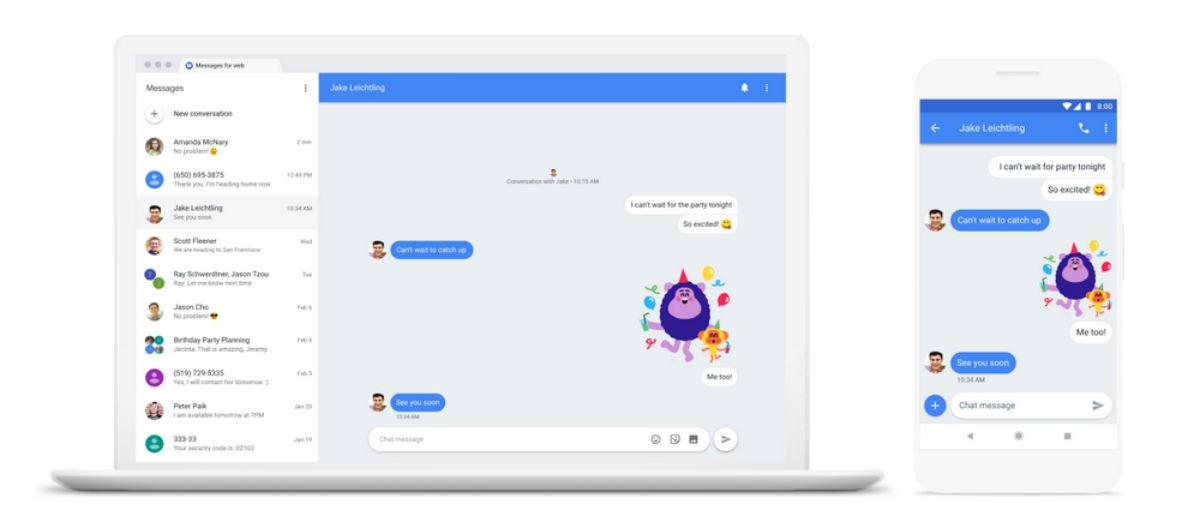Google is rolling out end-to-end encryption for Android messages users, making it harder for anyone, including law enforcement, to read the content of messages.
Google said it plans to roll out end-to-end encryption — starting with one-on-one conversations — leaving open the possibility of end-to-end encrypted group chats. It’ll become available to beta testers, who can sign up here, beginning later in November and continue into the new year.
“End-to-end encryption ensures that no one, including Google and third parties, can read the content of your messages as they travel between your phone and the phone of the person you’re messaging.
This will roll out to beta testers beginning this month and continue into next year. ” said Google product lead Drew Rowny in announcing the rollout.
Google’s move is part of an upgrade from SMS to the Rich Communication Services (RCS) standard with additional features for images and videos.
It will be available for people communicating using Android-powered devices.
The move brings additional privacy and security to Google’s messaging application, but comes amid rising complaints from law enforcement agencies around the world that strong encryption may enable criminals to hide their tracks.
Digital rights activists have long supported strong encryption to allow users to avoid snooping by governments and cybercriminals. But some governments have warned the technology could hinder criminal investigations.
End-to-end encryption is already available on some services such as WhatsApp, but the company has been facing resistance over its plan to bring full encryption to its Messenger app.
Last year, US Attorney General William Barr joined with British and Australian counterparts in urging Facebook to abandon its encryption, claiming the plan court hurt investigations into child exploitation.
Civil liberties groups countered that a lack of encryption or privileged access for law enforcement could hurt privacy and security for all internet users, creating holes that could be exploited by bad actors.



